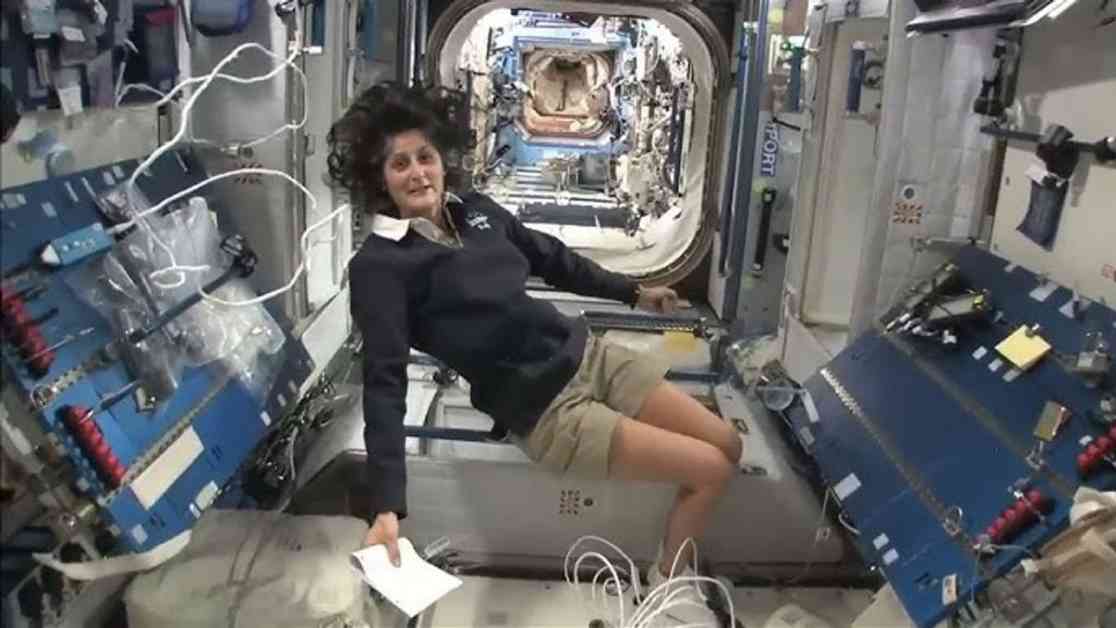NASA astronauts Barry Wilmore and Sunita Williams faced an unexpected delay on the International Space Station (ISS) after their originally planned eight-day stay was extended due to issues with the Starliner spacecraft. The spacecraft’s helium leaks and thruster problems raised concerns about the safety of the vehicle, prompting NASA and Boeing to reassess its readiness for the astronauts’ return to Earth. As a result, Wilmore and Williams now face the possibility of an additional six-month stay on the ISS, presenting them with a unique challenge of time distortion in space.
Challenges Faced by Astronauts
The uncertainty surrounding their return has not only raised safety concerns but also psychological challenges for the astronauts. Psychologists have noted that waiting, especially in stressful circumstances, can distort a person’s perception of time. In the case of Wilmore and Williams, the prolonged wait for a decision on their return could lead to time slowing down as they become more focused on the passage of time in the midst of uncertainty.
The psychological impact of delayed returns in space is a topic of interest for researchers studying human behavior in extreme environments. Anticipation and uncertainty during a wait can make time feel longer, which can be particularly challenging for individuals isolated in confined spaces such as the ISS. The mental strain of waiting under such conditions may amplify the feeling of a prolonged delay for the astronauts.
Comparison with Antarctic Research Stations
To gain insight into the effects of prolonged isolation and confinement on time perception, researchers often look to studies conducted in environments like Antarctica where teams of scientists spend extended periods in similar conditions. Studies have shown that time passes more quickly for Antarctic researchers when they are engaged in mentally stimulating tasks, suggesting that the astronauts’ daily work on the ISS could also play a role in shaping their perception of time.
One of the key factors influencing time perception in extreme environments is the presence of constant activity. Just as Antarctic researchers reported time passing more quickly when occupied with scientific work, astronauts on the ISS may experience a similar effect due to the mentally demanding tasks they engage in daily. This continuous engagement in meaningful activities could help mitigate the feeling of time dragging during their extended stay in space.
Effects of Boredom and Routine Loss
However, the absence of regular social interactions and a limited range of activities on the ISS may contribute to feelings of boredom and frustration, which can further slow down the perception of time for the astronauts. The loss of a routine and the monotony of daily life in space can exacerbate the sense of time dragging, posing a challenge for Wilmore and Williams if their stay is prolonged.
Tolerating uncertainty and managing the psychological impact of waiting in space are crucial skills for astronauts facing extended missions. Clear communication about delays and timeframes can help improve their ability to cope with uncertainty, reducing the negative impact on their well-being. As Wilmore and Williams navigate the challenges of time distortion during their extended stay on the ISS, their ability to adapt to the unique environment of space will be put to the test.
In conclusion, the unexpected delay faced by Wilmore and Williams on the ISS highlights the complex interplay between time perception, uncertainty, and psychological well-being in space exploration. As they await a decision on their return to Earth, the astronauts must rely on their resilience and coping strategies to navigate the challenges of an extended stay in orbit. Through clear communication, engagement in meaningful activities, and a focus on maintaining mental well-being, Wilmore and Williams can overcome the time distortion challenge posed by their prolonged mission in space.













